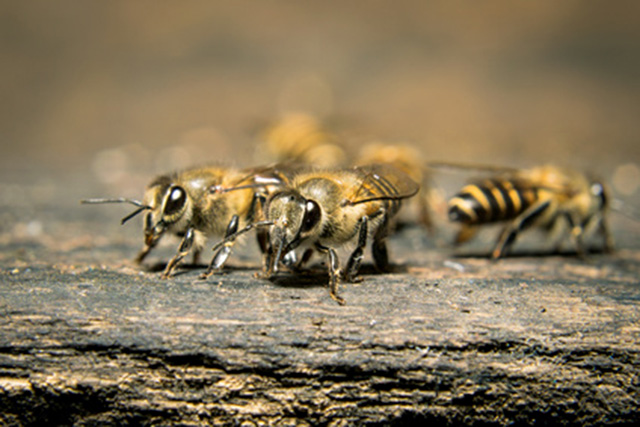World food supply in crisis with decline of pollinators
Bee colonies are collapsing, which could spell serious trouble for the food we eat.
Bees cross-pollinate much of the common produce that humans eat, including apples, avocados, broccoli, carrots, cucumbers, almonds, and so much more.
Without bees, none of these foods can grow.
According to the National Resources Defense Council (NRDC), scientists believe that bee colonies are collapsing because of pesticide exposure, parasitic mites, and lack of food.
However, bees are not the only pollinators in the world. There are many more pollinators that are in grave danger of extinction, according to a new report. These species include birds, bats, butterflies, moths, wasps and more.
Plants that are dependent on pollinators make up a whopping 35 percent of global crops. This crop production is valued at about $577 billion annually. The agricultural system would see a serious crisis with the decline of pollinators, which could also result in millions of jobs lost.
The New York Times reported:
The climate change, especially in North America and Europe, has had an impact in bumblebees as well, according to Sir Robert Watson from the Tyndall Centre for Climate Change Research.
Climate change also affects the way plants grow, when flowers bloom. Dr. Watson posed the following thought provoking question: “Will the pollinators be there when the flowers need them?”
The group who created the report showing the decline of pollinators is called Intergovernmental Science-Policy Platform on Biodiversity and Ecosystem Services. They were established in 2012 by the United Nations and are made up of 124 nations, including the United States.
Note: None of the information in our website is intended to diagnose, treat, cure or prevent any illness or disease. The content on our website is for educational purposes only.
DON’T FORGET to sign up for our weekly newsletter to get our latest articles, updates, free recipes and giveaways.
Common pesticides attract bees and kill them.
Bee-friendly gardens may be killing our treasured bees.
WHO labels Monsanto’s glyphosate as possible carcinogen.
REFERENCES:
1. “Honey Bee Health and Colony Collapse Disorder.” Agricultural Research Service. United States Department of Agriculture, n.d. Web. 6 Mar 2016.
2. “Vanishing Bees.” NRDC. National Resources Defense Council, n.d. Web. 6 Mar 2016.
3. “Decline of Pollinators Poses Threat to World Food Supply, Report Says.” The New York Times. The New York Times, 26 Feb. 2016. Web. 05 Mar. 2016.
4. “Pollination.” IPBES. N.p., 05 Jan. 2016. Web. 05 Mar. 2016.

















